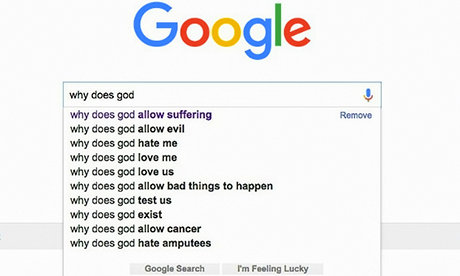It is not clear whether the quirks of search actually shape people’s beliefs.
But it’s worth remembering that posing a question to a search engine is not the same as posing a question to any other kind of source.
The competition for authority online is governed by a very different set of rules than in previous contests for theological legitimacy; often, when people express doubt on the web, those most ready to answer will also be those most dogmatic in their beliefs.
Every so often, economist Seth Stephens-Davidowitz crunches Google search data for theNew York Times and comes up with some fun statistics about, say, the anxieties of pregnant women (“can pregnant women eat shrimp?” is a popular search query in the US).
This Sunday, Stephens-Davidowitz turned his attention to God.
Some of the patterns he documents are predictable, such as the steep reduction in “Google searches for churches,” yet more evidence of the increasing number of “nones,” or that “searches related to the Bible, God, Jesus Christ, church and prayer are all highly concentrated in the Bible Belt. They rise on Sunday everywhere.”
Other patterns are more jarring: “Relative to the rest of the country, for every search I looked at, retirement communities search more about hell,” he writes.
Each month, on average, 422 people in the US ask Google “Why did God make me ugly?” and 103 ask “Why did God make me black?”
The most common God-related question, asked over 25,000 times per month in the US, is “Who created God?,” followed by that old Job-ian classic, “Why does God allow suffering?”
But we should be careful here; Google search data offers a skewed sliver of insight into the full range of human motivation and behavior. Continue reading
